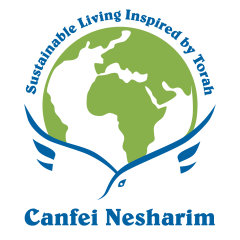by Benjamin E. Schott
“I call (sustainability) the recovery of common sense.”
-Tom Kelly (University of New Hampshire, Office of Sustainability)
There is no single solution or magic pill towards a sustainable future, quite the contrary. Each person, community, region, ethnic and religious group needs to search for its own unique approaches, based on its own cultural values and on the environmental condition of each respective region. This means that one must adapt sustainability to what is most important and most relevant to the land that they live on. Indeed, the principal of sustainability is focusing locally.
While organic markets are growing and buying organic can make a big difference for the environment, going the next step to being a local consumer is one of the greatest ways you can ensure the integrity of your local economy and strengthen your community. Why does it make a difference to buy local? While organic farming methods protect the environment in the way food is produced, they don’t make any difference to the environmental effect of transportation. On average, for every calorie of food we consume in the United States, 10 calories of fossil-fuel energy are used in producing, processing, transporting, and preparing that food, according to studies by David Pimentel of Cornell University.
To take the next step for environmental sustainability, make that effort to become conscious of where your food is coming from. Learn to be a critical shopper; know who is growing your food, and where it is being grown. Realize that your food could be traveling very long distances before it even gets to your grocer. Try not to be bought in just because the tomatoes you purchased were organically grown on a family farm. More times than not, the farms that it has grown on are hundreds of miles away, a lot of times on farms in Southern California. Stay local by shopping at farmers markets as much as possible. Be a self educator, and teach your children to find out where their food comes from. It is a lot of fun to learn where all of your “stuff” comes from and how it is made.
OK, so now you are ready to find some new local food. Where can you find it? Local farms, farmers’ markets, online stores, community-supported agriculture programs, and other options can be found through a nationwide Internet directory of small farmers and other local-food sources. To learn more, visit www.localharvest.org.
Local sustainability is not exclusive to just groceries; there are many other facets of your home that use huge quantities of resources. Energy companies have recently, in many areas, been letting their buyers pick which source there energy comes from. More and more communities are offering new energy options. Research where your energy is coming from, and more importantly how it is being produced.
The economic benefits to your community are an additional incentive for being a local consumer. By purchasing your produce, groceries, furniture, and even by purchasing your energy locally, you will be greatly diminishing the distance your goods will have traveled before they reach your home. You will also have peace of mind that your dollars spent will not have traveled across the country, or even overseas, but rather, be supporting Farmer Joe, who lives down the street. Support your local businesses and look into buying, or even producing for yourself, local energy. You will be surprised to see how much your local economy and environment will flourish because of the smart decisions you make.
The scientific approach in the discourse of sustainability is to acknowledge the “carrying capacity” of the land. If we all live within the limits of our own local area, we will not go beyond what the earth can handle. Local farmers use what the land provides them with. When you are checked and limited by the capacity of the land and resources you live on, you have taken the biggest and most important step in welcoming sustainability into your lifestyle. Let yourself and your children be a local leader; learn, teach, and respect the land, community and resources with which you have been generously provided.
Benjamin Schott was Canfei Nesharim’s science intern in 2006.
Originally posted in “On Eagles’ Wings” November 8th 2006
